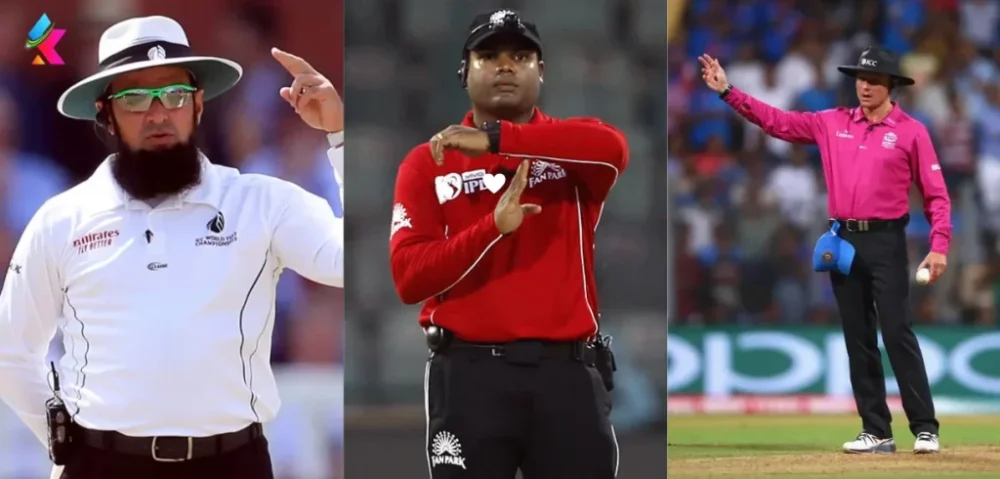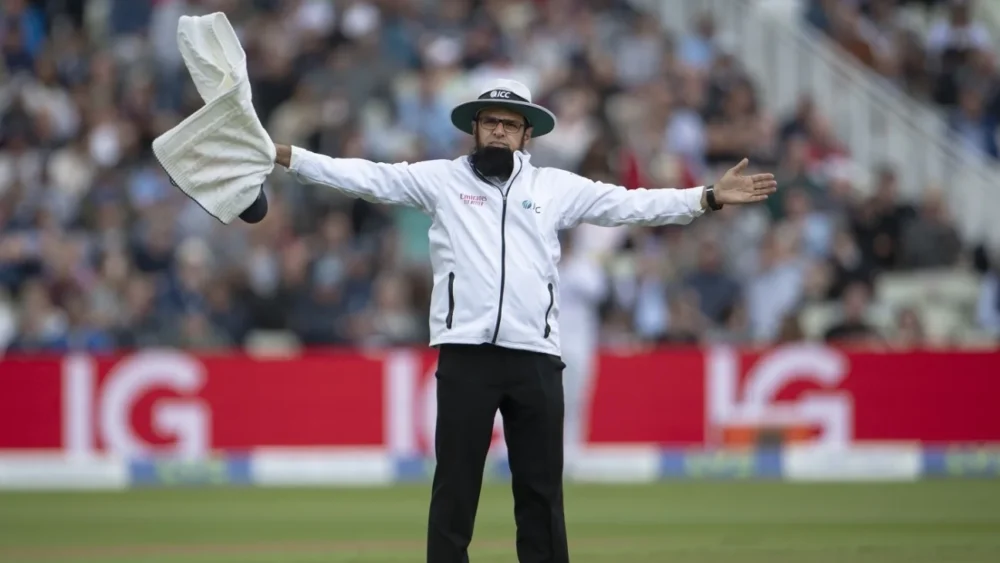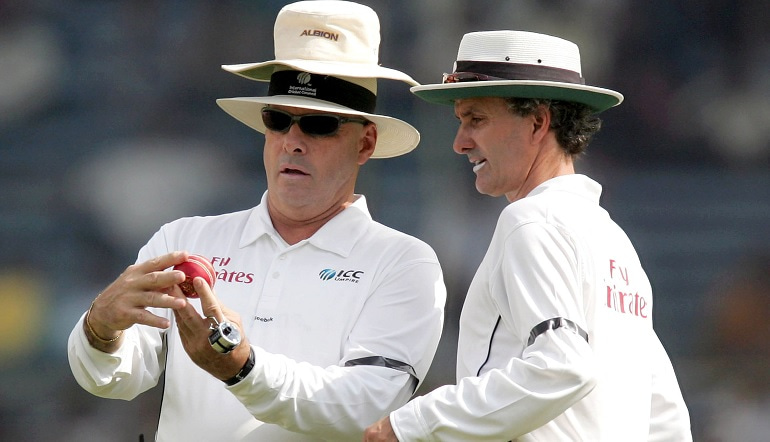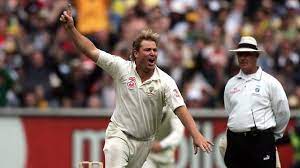How Much Do Cricket Umpires Get Paid

Cricket umpires play a crucial role in ensuring fair play and upholding the integrity of the game. However, their financial compensation often remains a topic of curiosity among cricket enthusiasts. While the pay scale for cricket umpires varies depending on factors such as experience, qualifications, and the level of matches officiated, it’s generally lower compared to the salaries of professional players.
At the international level, elite umpires appointed by the International Cricket Council (ICC) for Test matches, One Day Internationals (ODIs), and Twenty20 Internationals (T20Is) typically receive higher compensation than umpires officiating domestic matches. According to reports, ICC Elite Panel umpires can earn between $800 to $1,000 per day for Test matches and slightly lower for limited-overs fixtures. Additionally, they may receive allowances for travel, accommodation, and other expenses incurred while on duty.
In domestic cricket leagues, umpire salaries can vary widely depending on the league’s stature, financial resources, and the umpire’s experience. In major cricket-playing nations like India, England, Australia, and South Africa, top-tier umpires officiating in premier domestic competitions can earn respectable incomes. However, umpires in lower-tier leagues or in associate cricket-playing nations may receive significantly lower compensation.
It’s important to note that cricket umpires often have other professional occupations or commitments outside of officiating matches. Many umpires balance their cricketing duties with full-time jobs or careers in other fields, particularly in domestic cricket where match schedules may not be as frequent as in international cricket.
Despite the lower financial rewards compared to players, cricket umpires are motivated by a passion for the game, a sense of duty, and a desire to contribute to its fair conduct and growth. They undergo rigorous training, certification, and continuous professional development to ensure they uphold the highest standards of officiating.
In conclusion, while cricket umpires may not receive salaries on par with professional players, they play an invaluable role in the sport’s ecosystem. Their compensation varies depending on factors such as the level of matches officiated and geographical location. Nevertheless, umpires remain dedicated to their craft, driven by a love for cricket and a commitment to maintaining its integrity on the field of play.
Becoming a cricket umpire is a rewarding endeavor for those passionate about the sport and eager to contribute to its fair conduct.
1. Understand the Role: Before embarking on the journey to become an umpire, it’s essential to have a thorough understanding of the duties and responsibilities involved. Umpires are entrusted with ensuring fair play, upholding the laws of cricket, making decisions on the field, and maintaining match discipline.
2. Familiarize Yourself with the Laws of Cricket: A comprehensive understanding of the laws governing the game is fundamental for any aspiring umpire. Studying the latest edition of the Laws of Cricket published by the International Cricket Council (ICC) is essential. Online resources, instructional videos, and courses offered by cricketing organizations can also provide valuable insights into the nuances of the laws.
3. Attend Umpiring Courses and Workshops: Many cricket boards and associations offer umpiring courses and workshops designed to equip individuals with the necessary knowledge and skills to officiate matches. These courses cover various aspects of umpiring, including decision-making, match management, signaling, and positioning on the field.
4. Gain Practical Experience: Practical experience is crucial for honing umpiring skills and building confidence on the field. Aspiring umpires can start by officiating at local club matches, school games, or junior tournaments. This hands-on experience allows individuals to apply theoretical knowledge in real-game scenarios, learn from mistakes, and receive feedback from experienced umpires.
5. Obtain Accreditation: Many cricketing bodies offer umpiring accreditation programs that provide formal recognition of an umpire’s qualifications and competence. These programs often involve written assessments, practical examinations, and ongoing professional development requirements. Attaining accreditation demonstrates a commitment to professionalism and may open doors to officiating higher-level matches.
6. Network and Seek Mentorship: Building a network of fellow umpires, coaches, and mentors can be invaluable for aspiring officials. Networking opportunities may arise through umpiring associations, training courses, or cricketing events. Establishing relationships with experienced umpires allows individuals to seek guidance, learn from their experiences, and gain insights into the nuances of umpiring.
7. Stay Updated and Continuously Improve: Cricket is an evolving sport, and umpires must stay abreast of rule changes, innovations, and best practices in officiating. Engaging in ongoing professional development through workshops, seminars, and refresher courses helps umpires enhance their skills, stay sharp, and adapt to the evolving demands of the game.
In conclusion, becoming a cricket umpire requires dedication, knowledge, practical experience, and a passion for the sport. By following these steps, aspiring umpires can embark on a fulfilling journey towards officiating cricket matches and making a meaningful contribution to the game they love.
Top Cricket Umpire
Dickie Bird

Richard “Dickie” Bird stands as one of the most iconic figures in cricket umpiring history. His distinguished career spanned from 1973 to 1996, during which he officiated in numerous high-profile Test matches and One Day Internationals. Known for his impeccable decision-making, affable demeanor, and distinctive signals, Bird commanded respect from players and fans alike. His commitment to fairness and professionalism set a high standard for umpires around the world.
Richard “Dickie” Bird, born on April 19, 1933, in Barnsley, England, is a cricketing icon renowned for his distinguished career as both a player and an umpire. Bird’s journey in cricket began as a talented young player, representing Yorkshire County Cricket Club as a batsman. However, it was in umpiring that Bird truly left an indelible mark on the sport. Making his debut as a first-class umpire in 1970, Bird’s remarkable consistency, impeccable decision-making, and affable demeanor quickly earned him widespread respect. He went on to officiate in numerous high-profile Test matches and One Day Internationals, becoming one of the most recognizable figures in cricket umpiring. Bird’s commitment to fairness, professionalism, and the spirit of the game made him a beloved figure among players and fans alike. Even after retiring from umpiring in 1996, Bird remained involved in cricket as an author, commentator, and ambassador for the sport. His contributions to cricket were recognized with numerous honors, including the appointment as Member of the Order of the British Empire (MBE) in 1986 and induction into the ICC Hall of Fame in 2009. Dickie Bird’s legacy as a cricketing icon continues to inspire generations of umpires and players, standing as a testament to his enduring impact on the sport he loved.
Simon Taufel

Regarded as one of the modern era’s finest umpires, Simon Taufel made significant contributions to cricket officiating during his tenure from 1999 to 2012. Taufel’s remarkable consistency, sharp decision-making, and excellent positioning on the field earned him widespread acclaim. He was awarded the ICC Umpire of the Year title five consecutive times from 2004 to 2008, a testament to his exceptional skill and professionalism. Taufel’s legacy continues to inspire aspiring umpires to strive for excellence.
Simon Taufel, born on January 21, 1971, in St Leonards, New South Wales, Australia, is widely regarded as one of the finest cricket umpires in the modern era. Taufel’s journey in cricket began as a talented player, but it was his transition to umpiring that propelled him to international acclaim. Making his debut as an umpire in 1999, Taufel quickly gained recognition for his exceptional decision-making, precise positioning, and calm demeanor on the field. His remarkable consistency and professionalism earned him the prestigious ICC Umpire of the Year award five consecutive times from 2004 to 2008, a testament to his excellence in officiating. Taufel’s illustrious career saw him officiate in numerous high-profile Test matches, One Day Internationals, and T20 Internationals, where he commanded respect from players and fans alike. After retiring from umpiring in 2012, Taufel continued to contribute to the sport as a coach, mentor, and consultant, sharing his wealth of knowledge and experience with aspiring umpires around the world. His legacy as a cricketing luminary and ambassador for the game continues to inspire and enrich the cricketing community globally.
David Shepherd

David Shepherd was a beloved figure in cricket umpiring, known for his cheerful disposition, distinctive hop before signaling a decision, and unwavering professionalism. His illustrious career spanned from 1985 to 2005, during which he officiated in countless international matches with integrity and poise. Shepherd’s dedication to the game and his exemplary conduct set a benchmark for umpires to emulate, earning him the respect and admiration of players and fans worldwide.
David Shepherd, born on December 27, 1940, in Bideford, Devon, England, was a revered figure in the world of cricket, celebrated for his distinguished career as an umpire. Shepherd’s cricketing journey began as a talented batsman, representing Gloucestershire County Cricket Club with distinction. However, it was his transition to umpiring that earned him widespread recognition and admiration. Making his debut as an international umpire in 1985, Shepherd quickly became known for his cheerful demeanor, distinctive hop before signaling a decision, and unwavering professionalism on the field. His illustrious career saw him officiate in numerous Test matches, One Day Internationals, and ICC Cricket World Cup matches, where he earned the respect of players and fans alike. Shepherd’s dedication to the game and his exemplary conduct set a benchmark for umpires to emulate, making him a beloved figure in cricketing circles. Even after retiring from umpiring in 2005, Shepherd remained involved in the sport as a coach, mentor, and ambassador, leaving behind a lasting legacy as one of cricket’s most beloved personalities. His contributions to the game were recognized with honors such as the appointment as Member of the Order of the British Empire (MBE) in 1987. David Shepherd’s memory continues to live on in the hearts of cricket enthusiasts worldwide, a testament to his enduring impact on the sport he loved.
Aleem Dar

Aleem Dar, hailing from Pakistan, has established himself as one of the premier umpires of contemporary cricket. Since his international debut in 2000, Dar has officiated in numerous high-stakes matches across all formats of the game. Renowned for his calm demeanor, accurate decision-making, and professionalism under pressure, Dar has earned multiple ICC Umpire of the Year awards and continues to be a respected figure in the cricketing fraternity.
Aleem Dar, born on June 6, 1968, in Jhang, Punjab, Pakistan, is widely acclaimed as one of the premier cricket umpires of his generation. His journey in cricket began as a promising player, but it was his transition to umpiring that catapulted him to international prominence. Making his debut as an umpire in 2000, Dar quickly distinguished himself with his calm demeanor, accurate decision-making, and professionalism under pressure. His exemplary performances on the field earned him multiple ICC Umpire of the Year awards, solidifying his reputation as one of the best in the business. Dar’s illustrious career has seen him officiate in numerous high-profile Test matches, One Day Internationals, and T20 Internationals, where he has earned the respect of players and fans alike. Beyond his on-field contributions, Dar is known for his dedication to the development of umpiring talent, serving as a mentor and role model for aspiring officials around the world. His legacy as a cricketing luminary and ambassador for the game continues to inspire and enrich the cricketing community globally, leaving an indelible mark on the sport he loves.
While these four umpires represent a mere fraction of the talented individuals who have officiated cricket matches over the years, their contributions to the sport have left an enduring legacy. Through their skill, integrity, and dedication to upholding the spirit of cricket, Dickie Bird, Simon Taufel, David Shepherd, and Aleem Dar have cemented their places as among the greatest umpires to have ever graced the game.




